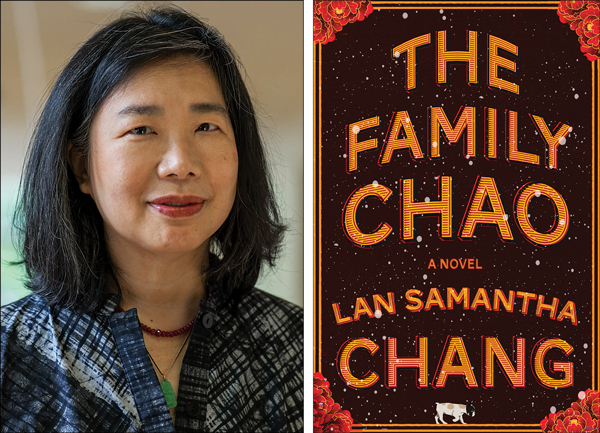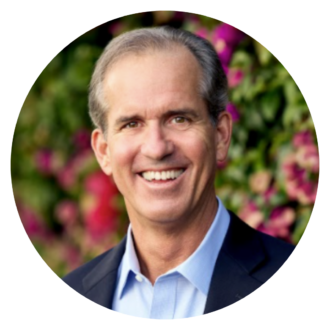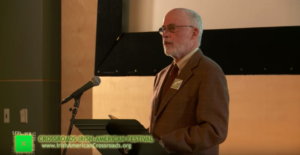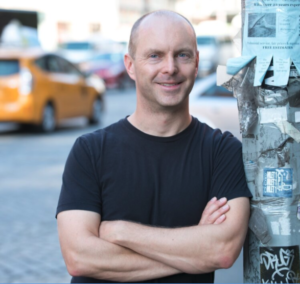Publishing Talks: Interview with Jane Friedman
May 10, 2022 by David
Filed under Ebooks and Digital Publishing, Publishing History, PublishingTalks, The Future
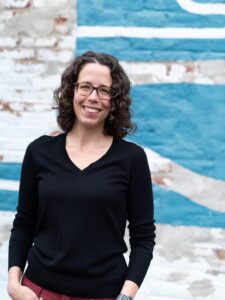 Publishing Talks started as a series of conversations with book industry professionals and others involved in media and technology, mostly talking about the future of publishing, books, and culture. It was great fun talking with people in the book industry about the evolution of publishing in the context of technology, culture, and economics.
Publishing Talks started as a series of conversations with book industry professionals and others involved in media and technology, mostly talking about the future of publishing, books, and culture. It was great fun talking with people in the book industry about the evolution of publishing in the context of technology, culture, and economics.
Later this series broadened considerably. In the past few years, I’ve talked with a variety of editors, publishers and others who have been innovators and leaders in independent publishing and bookselling in the past and into the present.
These conversations have been inspirational to me. I have had the pleasure of speaking with visionaries and entrepreneurs, editors, publishers and others who have influenced and changed contemporary literature and culture. I’ve also had the opportunity to speak with a number of friends and colleagues in the book business.
I’ve not had occasion to speak with the same person twice during all the years this series has gone on. But I really wanted to speak again with Jane Friedman, whose insights and knowledge I thoroughly respect, and get her sense of the current state of publishing and bookselling, especially as it affects writers and independent publishers. Our last Publishing Talks conversation was in 2015! Much has changed since then, and there was much for us to talk about.
Jane publishes a terrific newsletter I read religiously called The Hot Sheet. Her most recent book is The Business of Being a Writer (University of Chicago Press). Collaborating with The Authors Guild, she wrote The Authors Guild Guide to Self-Publishing. Her website offers a wide range of services and information for writers: “I report on the book publishing industry and help authors understand the business. I’ve been working in book publishing since the 1990s, but my views are not from the 1990s. Amidst rapid change in the industry, writers need honest and unbiased guidance to make the best decisions for their careers. I hope to offer you a signal amidst the noise.”
And I hope this conversation does the same.
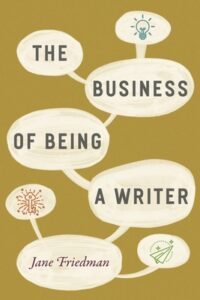
Podcast: Play in new window | Download
Sarah Vogel: The Farmer’s Lawyer: The North Dakota Nine and the Fight to Save the Family Farm
April 14, 2022 by David
Filed under Non-Fiction, WritersCast
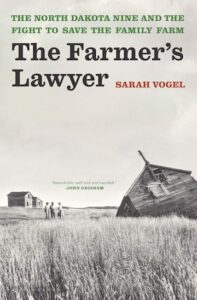 The Farmer’s Lawyer: The North Dakota Nine and the Fight to Save the Family Farm – Sarah Vogel – Bloomsbury – 9781635575262 – 432 pages – hardcover – $28 – ebook edition available at lower prices – November 2, 2021
The Farmer’s Lawyer: The North Dakota Nine and the Fight to Save the Family Farm – Sarah Vogel – Bloomsbury – 9781635575262 – 432 pages – hardcover – $28 – ebook edition available at lower prices – November 2, 2021
Many Americans think of North Dakota and the other prairie states as being conservative culturally and equally unprogressive politically. But that view of these predominantly farming states neglects their long histories of progressive populism that goes back over 100 years. That’s true of North Dakota where the Nonpartisan League was active and strong from the 1920s onward (and into the present, where it still exists as the Democratic NPL — much like the Democratic Farm Labor party in Minnesota that Hubert Humphrey represented.
That history provides the backdrop for Sarah Vogel’s true story in The Farmer’s Lawyer, which tells of a seemingly impossible-to-win legal battle, ironically against the US government agency that was established during the Depression to help family farmers, which by the 1970s was helping to destroy them. At the outset of the Reagan administration (Reagan was helped to be elected, ironically, by the support of midwestern farmers), family farmers of all sizes all across the country were experiencing the worst economic crisis since the Great Depression. Land prices, the backbone of farm economics, had gone down, while farm operating costs were up. and interest rates had skyrocketed. At the same time, in many areas, bad weather severely affected crop output.
Because of policies implemented by the Reagan administration, and growing bureaucracy in the Farmers Home Loan administration, many family farmers were being threatened with foreclosure.
At that time, Sarah Vogel, the daughter of a well known Nonpartisan League supporter and lawyer, was herself a young lawyer and single mother was in the process of leaving Washington, D.C., where she had been working for a government agency. Contacted by some desperate farmers from North Dakota who were on the verge of losing their farms, and inspired by her belief in the importance of family farms to American life, she agreed to represent these struggling clients who couldn’t afford to pay her.
In the midst of her own personal issues, but supported by her family and friends, Vogel brought a national class action lawsuit against the FHLA, which meant she would have to fight against the full force of the Reagan administration’s Department of Justice, in behalf of these family farmers’ Constitutional rights. As a young lawyer who had never privately practiced before, this was her first case!
This book tells the entire years-long saga in incredible detail, brought to life by Sarah Vogel’s writing skill and storytelling prowess. It’s difficult to imagine a true-to-life legal story that has nothing to do with murder or mayhem being a page-turner, but this book will keep you fully engaged throughout. And it will remind you of how difficult it is for “the little guys” to fight against entrenched bureaucracies, especially the Federal government. It is a heroic story for sure, and credits not only Sarah, but her father, and all the farmers she worked with, who would simply never quit, and whose stolidity made such a huge difference, not only to the outcome of their own case, but for many others that followed them.
This is a story about courage, justice, commitment, and belief in oneself. And it is important for us to be reminded that Americans can stand together for the good of all, especially now, when we can agree on virtually nothing. It is an inspiring journey I appreciated learning about. This is a terrific book, and I think we had a terrific conversation as well.
Sarah Vogel is an attorney and former politician whose career has focused on family farmers and ranchers. Vogel was the first woman in U.S. history to be elected as a state commissioner of agriculture. In 2006, the American Agricultural Law Association awarded her its Distinguished Service Award for contributions to the field of agriculture law, and Willie Nelson honored her at Farm Aid’s thirtieth anniversary in 2015 for her service to farmers. She is an advocate for Native American rights and lives in Bismarck, North Dakota.
“Sarah’s story, told in her unique voice, inspires me–and I’m sure it will inspire you–to fight for family farmers.” –Willie Nelson
Author website here.
Buy the book here.

Podcast: Play in new window | Download
Publishing Talks: Interview with George Slowik, Jr. of Publishers Weekly
February 23, 2022 by David
Filed under Publishing History, PublishingTalks
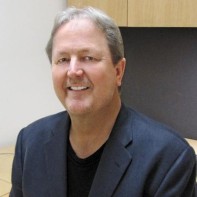 Publishing Talks began as a series of conversations with book industry professionals and others involved in media and technology, mostly talking about the future of publishing, books, and culture. I’ve spent time talking with people in the book industry about how publishing is evolving in the context of technology, culture, and economics.
Publishing Talks began as a series of conversations with book industry professionals and others involved in media and technology, mostly talking about the future of publishing, books, and culture. I’ve spent time talking with people in the book industry about how publishing is evolving in the context of technology, culture, and economics.
Some years ago, this series broadened to include conversations that go beyond the future of publishing. In an effort to document the literary world, I’ve talked with a variety of editors, publishers and others who have been innovators and leaders in independent publishing in the past and into the present.
These conversations have been inspirational to me on many levels. I have gotten to speak with visionaries and entrepreneurs, as well as editors and publishers who have influenced and changed contemporary literature and culture. I’ve also had the opportunity to speak with a number of friends and colleagues I have met over the many years I have been in the book business.
2022 is the 150th anniversary of Publishers Weekly, the essential trade magazine of the book industry. The magazine was founded in 1872, and the fact that it has not just survived, but thrived for most of the many years it has been published says something about both the book industry and the people who have been part of its trade media.
Just as it has done for so many magazines, the digital era has meant change for Publishers Weekly, and credit is due to current ownership for guiding it successfully through very difficult times. Those of us who have been around the book business for a long time remember PW as it is ubiquitously called, when it had a lot more pages than it does today, and when it was literally the only way to get news about publishing and bookselling in one reliable place. Now the print magazine is relatively short, most of us consume it digitally, and the magazine’s products and revenues are radically different from what they were just a few years ago, including a variety of newsletters, podcasts and other digital products.
George Slowik, Jr. is the owner of the magazine’s parent company, PWxyz, LLC. Slowik had been the publisher of the magazine from 1990-1993 and later ran the excellent magazine, American Prospect, and then in 2010 he bought it from its then owner, Reed Business Information, which was in the process of selling off its entire portfolio of publications.
When Publishers Weekly was originally launched it was the bibliographical source commercial publishers used to list their forthcoming titles for booksellers. The book business was relatively small at that time, with most publishers clustered in a few cities, especially New York and Boston. Over the many years it was in business, the magazine expanded to provide news and stories about the publishing industry, and today, while the industry and the media that serves it have grown, it still is an essential source of title data, publishing over 9,000 book reviews annually at a time when book reviews are more needed than ever.
In this podcast we talked about the magazine’s history, the creation of the digital archive of its entire run, activities around the 150th anniversary year, the past, present and future state of publishing, and much more.
Even if you are not an active participant in the book industry, the history of publishing is valuable to know about as it is in many ways the history of modern culture. You can learn more about Publishers Weekly and sign up for their free email newsletters, at their website. 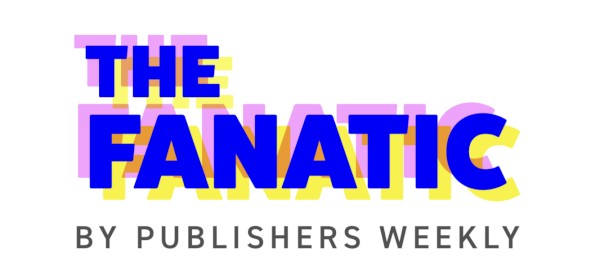
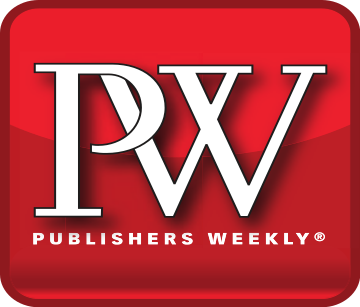

Podcast: Play in new window | Download
Lan Samantha Chang: The Family Chao (A Novel)
February 8, 2022 by David
Filed under Fiction, WritersCast
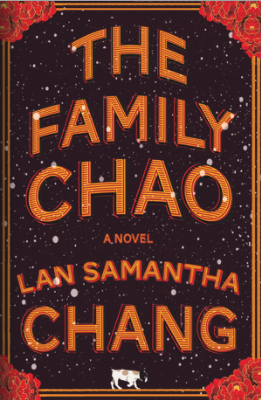 The Family Chao – Lan Samantha Chang – W.W. Norton – 9780393868074 – 320 pages – Hardcover – $29.00 – February 1, 2022. eBook versions available at lower prices.
The Family Chao – Lan Samantha Chang – W.W. Norton – 9780393868074 – 320 pages – Hardcover – $29.00 – February 1, 2022. eBook versions available at lower prices.
This is a beautifully written and thoughtfully composed novel about three brothers in a Chinese American family living somewhat awkwardly in a small town in Wisconsin. It has elements of the picaresque, the humorous and a great deal of sadness and pain that suffuses all.
At the heart of the novel are the three sons of the family patriarch, Leo Chao, who with his wife established and operated the Fine Chao restaurant in this small heartland community for over thirty years. The mother and father are almost mythological characters, he being the large appetite materialist and she being the spiritual – almost mystical – counterpoint to his outsized public persona.
When he dies, he is presumed to have been a murder victim by the residents of Haven, Wisconsin, and consequently unwanted attention is turned toward the brothers, each of whom has attempted to carve out an individual identity separate from their parents. Each of them is suspect in their formerly quiet community – Dagou, now the restaurant’s boisterous chef; Ming, financially successful but emotionally stunted; and James, the youngest, who is a dreamy college student not at all suited to the family tradition.
The book is a wonderful homage, well crafted by this very talented writer to The Brothers Karamazov. Each of the sons must struggle to understand and cope with what happened to his father, and one becomes the public scapegoat in the story. Chang is never heavy handed in her approach, and you don’t have to remember your Dostoyevsky to appreciate The Family Chao completely.
This is a complex and compelling story of what it is like to be an immigrant family in the heart of the heartland. It is also an American story, and very much a universal one at that. I enjoyed Chang’s writing and her storytelling, the many intriguing characters so finely portrayed, and the mystery in the novel that is unveiled unexpectedly that quite deftly ties together the entirety of the family Chao. Lan Samantha Chang is a terrific novelist and we had an equally terrific conversation about this book, her writing and her sense of the world at large.
Lan Samantha Chang is the Director of the Iowa Writers Workshop and Elizabeth M. Stanley Professor in the Arts at the University of Iowa. She is the author of a collection of short fiction and two novels and one book of nonfiction, All Is Forgotten, Nothing Is Lost. She has received creative writing fellowships from Stanford University, Princeton University, the Radcliffe Institute for Advanced Study, the Guggenheim Foundation, and the National Endowment for the Arts.
Podcast: Play in new window | Download
William J. Peters: At Heaven’s Door-What Shared Journeys to the AfterLife Teach about Dying Well and Living Better
January 25, 2022 by David
Filed under Non-Fiction, WritersCast
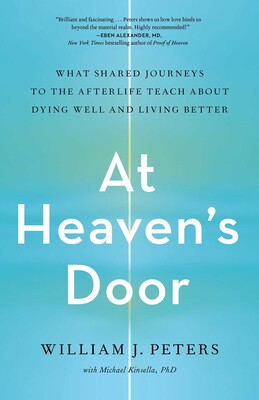 At Heaven’s Door – What Shared Journeys to the Afterlife Teach about Dying Well and Living Better – William J. Peters – with Michael Kinsella – Simon and Schuster – 978-1-9821-5042-6 – Hardcover – 248 pages – $26.00 – January 18, 2022 – ebook editions available at lower prices
At Heaven’s Door – What Shared Journeys to the Afterlife Teach about Dying Well and Living Better – William J. Peters – with Michael Kinsella – Simon and Schuster – 978-1-9821-5042-6 – Hardcover – 248 pages – $26.00 – January 18, 2022 – ebook editions available at lower prices
William Peters is a therapist who had worked for many years with people at the end of their lives. In 2000, when he was volunteering at the Zen Hospice Project in San Francisco , he experienced something very similar to what mystics describe and what some people who have been close to death have reported, the sense of floating in midair, completely out of the body. In this case, he was with his patient in this “other dimension” and the dying person looked at him and smiled. Peters himself returned to his body, but the patient remained unconscious and soon died.
This powerful experience set Peters off on what has become the journey of his life’s work. He began searching for other people who had had similar experiences. He spent more than twenty years finding people, talking to them, and meticulously categorizing their stories to identify the patterns and characteristics of what he calls the “shared crossing” experience. What is really interesting is how similar all these experiences are, regardless of age, gender, background, cultural origin, etc. Many of these stories are included in this book, as people have had visual and sensory effects that are to them evidence of another dimension, that brought with them powerful emotional after-effects that in most cases stayed with them and completely changed their understanding of reality.
Apparently this kind of experience is known to many in the hospice community and even some otherwise rationalist medical practitioners. The book is filled with stories of all kinds, some are spouses and parents of loved ones lost either suddenly or after long illnesses, and some stories are told by individuals who were simply present at someone’s final passage and were chosen to share the experience, or in some cases to help usher the dying person into the light of this “afterlife” dimension.
After years of research and documentation, Peters has a lot to say about what all of these experiences might mean for us – the living. Regardless of our outlooks and beliefs, we all want to know what will happen to us when we die, and those who have shared in the death experience as reported here might allay our all too reasonable fear and help explain what comes next. Our culture does not embrace the experience of death as many other cultures have done – our medicine tries desperately to stave off death, and we are all so attached to living, with no training or understanding of death, we push it away completely.
It does not matter whether you embrace or reject the stories told here, or the literal descriptions of the “afterlife” and the other dimensions the dying experience. Maybe what we experience at death is just a biological projection, after all. Whatever you may choose to believe, knowing more about death, understanding the end-of-life passage, and better integrating it into our lives is important for our psyches.
William Peters is the founder of the Shared Crossing Project and director of its Research Initiative. He has spent many years studying end-of-life experiences. Peters worked as a hospice volunteer with the Zen Hospice Project in San Francisco and as a teacher and social worker in Central and South America. A practicing grief and bereavement therapist, he holds degrees from Harvard’s Graduate School of Education and UC Berkeley.
I had a terrific conversation with William Peters. The book, and my conversation with the author have stayed with me and I continue to explore where it has taken me. It appears to be a simple book, but comes with many layers of understanding and thoughtfulness for the attentive reader.
Visit the Shared Crossing website here.
Podcast: Play in new window | Download
Enrique Salmón: Iwígara: American Indian Ethnobotanical Traditions and Science
January 9, 2022 by David
Filed under Non-Fiction, WritersCast
 Iwígara: American Indian Ethnobotanical Traditions and Science, The Kinship of Plants and People — Enrique Salmón –Timber Press — 978-1-60469-880-0 — Hardcover – $34.95 – ebook and audio book versions available at lower prices
Iwígara: American Indian Ethnobotanical Traditions and Science, The Kinship of Plants and People — Enrique Salmón –Timber Press — 978-1-60469-880-0 — Hardcover – $34.95 – ebook and audio book versions available at lower prices
This is a truly incredible and hugely inspiring book for me. Enrique Salmón, a member of the Raramuri tribe from Mexico, has spent a lifetime learning and studying the medicinal and cultural properties of North American plants. He now teaches at California State University-East Bay in Hayward, California. His work may place him in academia, but he is fully engaged in the natural world.
Salmon begins his work with the deeply held knowledge that all life-forms are interconnected and share the same breath, which is called Iwígara in the Raramuri tribe.
In this book, Salmón presents us with eighty of the most important plants used by North American indigenous peoples. Of course, plants have always been used as food and medicine by indigenous peoples. What is important knowledge for those who are interested in engaging with a plant centric life are the passed down information about identification and harvest, the nature and applications of plants for food and medicine, and to understand how they have been central to traditional stories and myths for the disparate cultures across this continent.
Salmón honors the traditions and practices of so many different tribes here, and helps us understand the variation across different biomes and cultures of the people who live in them. Some of us learn deeply in a specific place across long periods of time, while others may trade breadth for depth. Native peoples are among the former, but most modern people fall into the latter category. A book like this one helps bridge the two different approaches to knowledge. Salmón recognizes that tension, and manages it well here. He understands that one cannot live in deep connection to the natural world without choosing a place in which to live. But readers need to know where to begin, and this book can be an introduction for anyone who wants to begin their own journey of learning and knowledge about plants, healing and cultural traditions.
I should mention also that the book is beautifully designed and includes many excellent photographs and illustrations, most in color. It is excellent work, combining narrative with references suited to beginners and experienced naturalists alike.
Enrique is also the author of Eating the Landscape: American Indian Stories of Food, Identity, and Resilience (2012).
I was honored to have the opportunity to speak with Enrique Salmón for Writerscast about his work, and hope you will enjoy listening to a truly knowledgeable plant practitioner.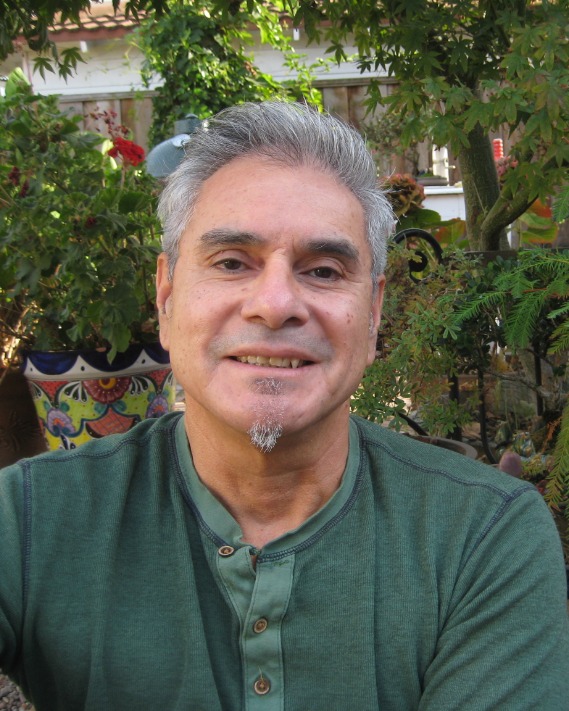
Purchase Iwígara from Bookshop.org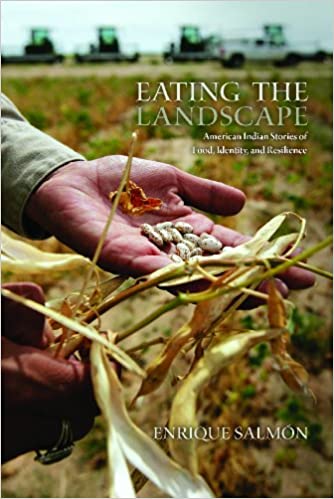
Podcast: Play in new window | Download
Peter Quinn: Banished Children of Eve: A Novel of Civil War New York
December 10, 2021 by David
Filed under Fiction, WritersCast
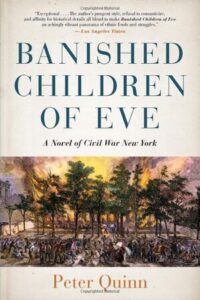 Banished Children of Eve: A Novel of Civil War New York – Peter Quinn – Empire State Editions (Fordham University Press) – 978-08232-9408-4 – 612 pages – paperback – $17.95 (eBook version is not available for this title)
Banished Children of Eve: A Novel of Civil War New York – Peter Quinn – Empire State Editions (Fordham University Press) – 978-08232-9408-4 – 612 pages – paperback – $17.95 (eBook version is not available for this title)
Historical novels based in New York City have always appealed to me. I am not sure why. Maybe it has something to do with the time I spent with my grandparents, who lived in New York City, took me frequently to the Museum of the City of New York, and showed me many of the historical sites of the city. Maybe it is simply because so much of American history is the history of that great city.
I picked this book to read while browsing a bookstore for the first time since the pandemic began. Book discovery is a wonderful thing, and something many of us have missed. There are occasions when a book seems to jump off the shelf and into your hands, drawn there by some mysterious bookstore magic. Sometimes those discoveries are serendipitous and that was definitely the case with this novel. It was not the only book I bought that day, but it jumped my queue and I devoured the book in a way that reminded me of my youthful nights under the covers reading by flashlight.
Banished Children of Eve is one of those longish historical novels that is a joy to immerse oneself in. It is a great story about a dramatic time and place, with terrific well-drawn characters and a great story unfolding in multiple voices. And even the minor characters are brought to life by Quinn’s sympathetic descriptions.
The story takes place in 1863 when the Civil War is its third bloody year and the Union, having exhausted its volunteer army, has been forced to impose the first military draft. In New York City, where this book is set, that is a fateful decision, one that will set off the worst urban riot in American history. The cast of characters created by author Quinn represents every element of New York’s cultural community including an Irish-American hustler, a dishonest Yankee stockbroker, a young immigrant serving girl, a beautiful mixed-race actress and her white lover (a struggling minstrel). Surrounding these main characters are a number of historical, real-life characters we recognize, including the Union General George McClellan, Archbishop “Dagger John” Hughes and even the songwriter Stephen Foster.
All come together in the emerging disaster of the Draft Riots, bringing to life a period in American history that is certainly less well-known to most Americans than the more often told stories of battles and national politics of our war-torn country.
William Kennedy’s description of Peter Quinn pretty much sums up how I feel about this book: “Peter Quinn takes history by the throat and makes it confess.” That is perhaps one of the greatest book blurbs ever, by the way.
Quinn is a natural storyteller, and if you are not familiar with this incredible period in American history, I recommend you get a copy of this book immediately and dive in. You will be amazed and thrilled to read this book.
Talking to Peter was great fun for me. We certainly could have gone on for hours. I hope you enjoy our conversation as much as I did.
Quinn was the chief speechwriter for Time, Inc. and retired as corporate editorial director for Time Warner at the end of 2007. He received a B.A. from Manhattan College, an M.A. in history from Fordham University and completed all the requirements for a doctorate except the dissertation. He was awarded a Ph.D., honoris causa, by Manhattan College in 2002.
In 1979, Quinn was appointed to the staff of Governor Hugh Carey as chief speechwriter. He continued in that role under Governor Mario Cuomo.
Originally published in 1994, Banished Children of Eve won a 1995 American Book Award. Hour of the Cat, set in Berlin and New York on the eve of WWII, was published in 2005, a nonfiction collection, Looking for Jimmy: In Search of Irish America was published in February 2007. His third novel, The Man Who Never Returned is based on the still-unsolved 1930 disappearance of NYS Supreme Court Justice Joseph Force Crater, published in 2010.
Quinn co-wrote the script for the 1987 television documentary McSorley’s New York, for which he won an Emmy. He appeared in several PBS documentaries, including The Irish in America, New York: A Documentary Film, and The Life and Times of Stephen Foster, as well as the dramatic film, The Passion of Sister Rose. Quinn was an advisor on Martin Scorcese’s film Gangs of New York, the story of which precedes and in some ways underpins Banished Children of Eve.
Quinn was the editor of The Recorder: The Journal of the American Irish Historical Society from 1986 to 1993 and has published articles and reviews in the New York Times, Commonweal, America, American Heritage, the Catholic Historical Review, the Philadelphia Enquirer, the L.A. Times, Eiré-Ireland, and other newspapers and journals.
Quinn is also president and co-founder of Irish American Writers & Artists.
You can buy Banished Children of Eve at Bookshop.org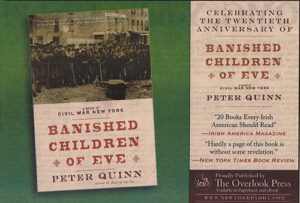
Podcast: Play in new window | Download
Geoff Rodkey: Lights Out in Lincolnwood (A Novel)
November 3, 2021 by David
Filed under Fiction, WritersCast
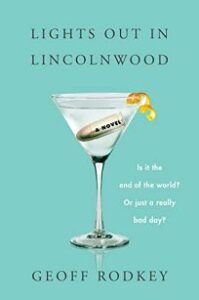 Lights Out in Lincolnwood – A Novel – Geoff Rodkey – HarperCollins – 9780063065925 – Paperback – 544 pages – $16.99 – ebook versions available at lower prices
Lights Out in Lincolnwood – A Novel – Geoff Rodkey – HarperCollins – 9780063065925 – Paperback – 544 pages – $16.99 – ebook versions available at lower prices
I have to admit that I did not expect to really like this book anywhere near as much as I did. I’ve certainly read my share of suburban based stories that wittily poke fun at modern life. But Geoff Rodkey surprised me with Lights Out in Lincolnwood and I found myself reading it every day in big chunks – the kind of book that is dangerous to my sleep as I can’t stop reading. Like eating dried fruit. Except that I did not regret it later.
Today’s world seems to encourage writers to imagine the worst about our future – this book does that for sure. But Rodkey keeps us from getting depressed with humor, even as he tells us the truth about ourselves and our illusions we like to carry around about how we would act under pressure.
And there is not much more pressure one can imagine than the story Rodkey tells here, as an unexplained collapse of our infrastructure suddenly happens. By focusing on a single family and its community, Rodkey is able to bring the whole story down to a practical level, as his characters, whom we readily recognize, go through an almost Marxian (that’s Marx Brothers by the way) experience that readers can’t help laugh at and simultaneously shudder about. It is frighteningly close to home.
How do we survive calamity when we have no idea how to do anything that is needed to survive and the tools we need don’t work and the neighbors we thought we knew turn into completely different people – or maybe reveal themselves for whom they really are, at last.
The entire book takes place during an action packed and tension filled four days – chaos, change, fear, hysteria, and perhaps even joy mark the struggle of the Altman family as they try to determine how to live in a world without technology. They struggle with getting food and water, their modern past-times and addictions, neighbors who become militaristic and brutal, and the town’s looting of the local Whole Foods is the least of the craziness they have to contend with as they try to figure out just what is going on and how they will manage to get through a worldwide catastrophe.
It’s impossible to not be captivated by this book. It was fun to read and to talk to Geoff, and I know it made a difference as its story line and characters have stayed with me long after I finished reading the book. We had a terrific time talking for Writerscast about this book and Geoff’s work as a writer in various media.
Geoff Rodkey is the New York Times best-selling author of ten children’s books, including the Tapper Twins and Chronicles of Egg series; We’re Not From Here; and Marcus Makes a Movie, a collaboration with actor Kevin Hart. He’s also the Emmy-nominated screenwriter of Daddy Day Care and RV, among other films. Geoff lives in New York City with his family.
In particular, We’re Not From Here, A sci-fi comedy for middle grade readers about a family of humans who immigrate to an alien planet after Earth is destroyed (written for middle grade readers) looks like another fun Rodkey story.
Podcast: Play in new window | Download
Publishing Talks: Interview with Jeff Deutsch of Seminary Co-op Bookstores
October 12, 2021 by David
Filed under PublishingTalks, The Future
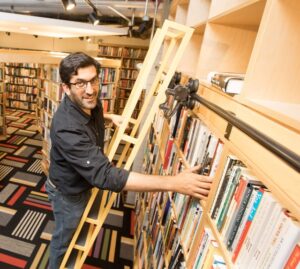 Publishing Talks began as a series of conversations with book industry professionals and others involved in media and technology, mostly talking about the future of publishing, books, and culture. I’ve spent time talking with people in the book industry about how publishing is evolving in the context of technology, culture, and economics.
Publishing Talks began as a series of conversations with book industry professionals and others involved in media and technology, mostly talking about the future of publishing, books, and culture. I’ve spent time talking with people in the book industry about how publishing is evolving in the context of technology, culture, and economics.
Some time back, this series broadened to include conversations that go beyond the future of publishing. In an effort to document the literary world, I’ve talked with a variety of editors, publishers and others who have been innovators and leaders in independent publishing in the past and into the present.
These conversations have been inspirational to me on many levels. I have gotten to speak with visionaries and entrepreneurs, as well as editors and publishers who have influenced and changed contemporary literature and culture. I’ve also had the opportunity to speak with a number of friends and colleagues I have met over the many years I have been in the book business.
This week’s podcast is one I am really excited about. Jeff Deutsch is the director of Chicago’s Seminary Co-op Bookstores, which calls itself the first not-for-profit bookstore in the United States whose mission is devoted to bookselling (there are other nonprofit bookstores of course, generally components of literary centers, like Beyond Baroque in Venice, California, Woodland Pattern in Milwaukee, and Writers and Books in Rochester, NY are examples).
Last spring I read a report of a Book Industry Study Group panel that included Jeff, and what he talked about immediately caught my attention. Deutsch was reported to have said that the model of bookselling we’ve inherited needs to be rethought: just facilitating more sales, more efficiently, is not the way for bookstores to survive. A bookstore that actually means something to readers will need to carry a deep backlist and to spend time helping readers discover new voices, new texts.
During that panel Deutsch said, “The publishing world and distributors—what you value is not our ability to sell books,” because independent bookstores can never sell in the same volume as Amazon. “Yet we all know how important bookstores are,” he said. As publishers and booksellers once knew, developing readerships for books and authors takes time and devotion that have been boiled out of the entire process now.
Jane Friedman’s outstanding book industry newsletter Hot Sheet compared Jeff’s approach to the Slow Food movement (I think that idea makes sense – I wrote a manifesto for publishers a few years ago on the idea of Slow Publishing, but never developed it enough to publish). Nina Barrett, owner of Bookends & Beginnings in Illinois (which has filed a lawsuit against Amazon), also on the BISG panel said “I think it’s like Alice Waters talking for decades about a sustainable food ecosystem and ultimately revolutionizing the food industry that way. That’s the point we’re at.”
As Jane pointed out, “independent booksellers will lose every time if they base their worth on the mere transactional value of selling books. His stance—that bookselling has a deeper meaning and cultural value—is indeed how boutique and online retailers outside of the Amazon ecosystem are positioning themselves for success.”
Deutsch also said, “We should figure out models that support the work that we’re trying to do, not shoehorn this other model of retail that is really just about buying and selling and not about culture….We all have vocational awe, but couldn’t we have vocational awe and still make a decent living?”
This conceptual framework resonates with me and I think is worthy of much more discussion. Why shouldn’t there be a nonprofit bookselling sector to promote literary and other noncommercial books and authors, just as there is a nonprofit theater? Why should we continuously try to fit a crucially important culture activity into a commercial model, and always fail?
I hope that hearing Jeff talk about this concept will help stimulate further discussion and concrete action. Please feel free to comment and if you are interested in helping, please be in touch.
Connect to the Seminary Co-op Bookstores website here.
Before joining the Co-op Deutsch was the director of stores for the Stanford Bookstore Group and prior to that managed the Cal Student Store at the University of California, Berkeley.

Podcast: Play in new window | Download
Publishing Talks: Interview with Ben Fox of Shepherd.com
September 20, 2021 by David
Filed under PublishingTalks, The Future
 Publishing Talks began as a series of conversations with book industry professionals and others involved in media and technology, mostly talking about the future of publishing, books, and culture. I’ve spent quite a bit of time over the years talking with people in the book industry about how publishing has evolved in the context of technology, culture, and economics.
Publishing Talks began as a series of conversations with book industry professionals and others involved in media and technology, mostly talking about the future of publishing, books, and culture. I’ve spent quite a bit of time over the years talking with people in the book industry about how publishing has evolved in the context of technology, culture, and economics.
Some time back, this series broadened to include conversations that go beyond the future of publishing. In an effort to document the literary world, I’ve talked with a variety of editors, publishers, booksellers, innovators, and leaders in publishing from the past into the present.
These conversations have been inspirational to me in many ways. I have gotten to speak with visionaries and entrepreneurs, as well as editors and publishers who have influenced and changed contemporary literature and culture. I’ve also had the opportunity to speak with a number of friends and colleagues I have met over the decades I have been in the book business.
Everyone in the book business recognizes the challenge of matching books to readers and vice versa. Search and discovery are the defining issues of this era of vast abundance and creativity in books and all media. There have been any number of efforts to address these challenges that go far beyond what any individual author or publisher can accomplish. One new effort that is trying to address the problem of online book discovery is called Shepherd. Ben Fox is the founder of this book search and recommendation website which he describes as being “Like browsing the best bookstore in the world.”
Like so many others who have become involved with the book publishing industry, he was motivated by a love of books and a desire to replicate the experience of browsing in a physical bookstore online. It’s a simple enough proposition in theory, but in practice, we know that nothing is easy for start ups, and especially so for start ups in the book industry.
I learned about Shepherd from an author I have worked with who has become a friend. Since I believe we need to foster creativity and innovation in every aspect of the book delivery chain, I wanted to talk to Ben to find out more about what he is doing, how he is doing it, and how he feels he can make this effort a success.
In a fairly short time, Shepherd has built a robust offering, with book lists of all kinds, and direct connections on the site to a large number of active authors.
Visit Shepherd.com and see for yourself what Ben Fox is doing. It would be interesting to me to hear what you think of it. Does Shepherd help you find books you might not otherwise have discovered? Does meeting authors online make a difference to your sense of their books and your willingness to buy and read them? Does Shepherd succeed in creating an online book browsing experience that matches what a great bookstore can do?
“I love walking around the bookstore and browsing until something grabs my attention. I want to bring that experience online. I want to help readers bump into books they would otherwise not find. And, help them follow their curiosity to new places.
And, I want to help authors meet more readers. Authors illuminate our world, take us on faraway journeys, and entertain us. There is a growing trend that authors have to become their own marketing team. That concerns me because it takes time away from writing and is very hard to do. One of my long-term goals is to help authors market themselves and give them more time to write.” — Ben Fox
It’s pretty obvious that retail shopping is changing. As readers, we need to figure out new ways to discover books, and for writers and publishers, it is crucial that there are a variety of different ways for us to reach out to readers when we have books we want them to know about. I hope Shepherd will succeed.

Podcast: Play in new window | Download

